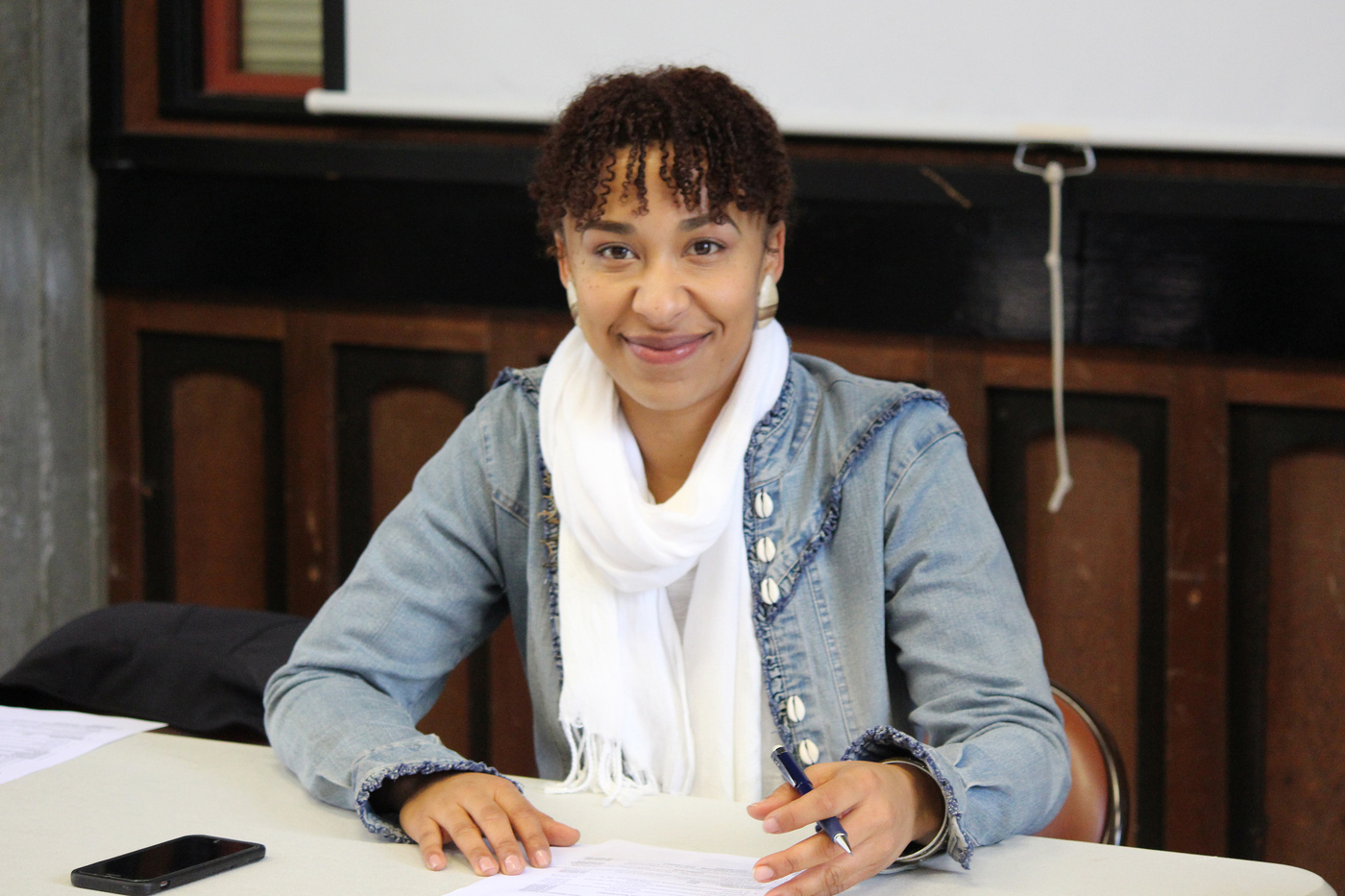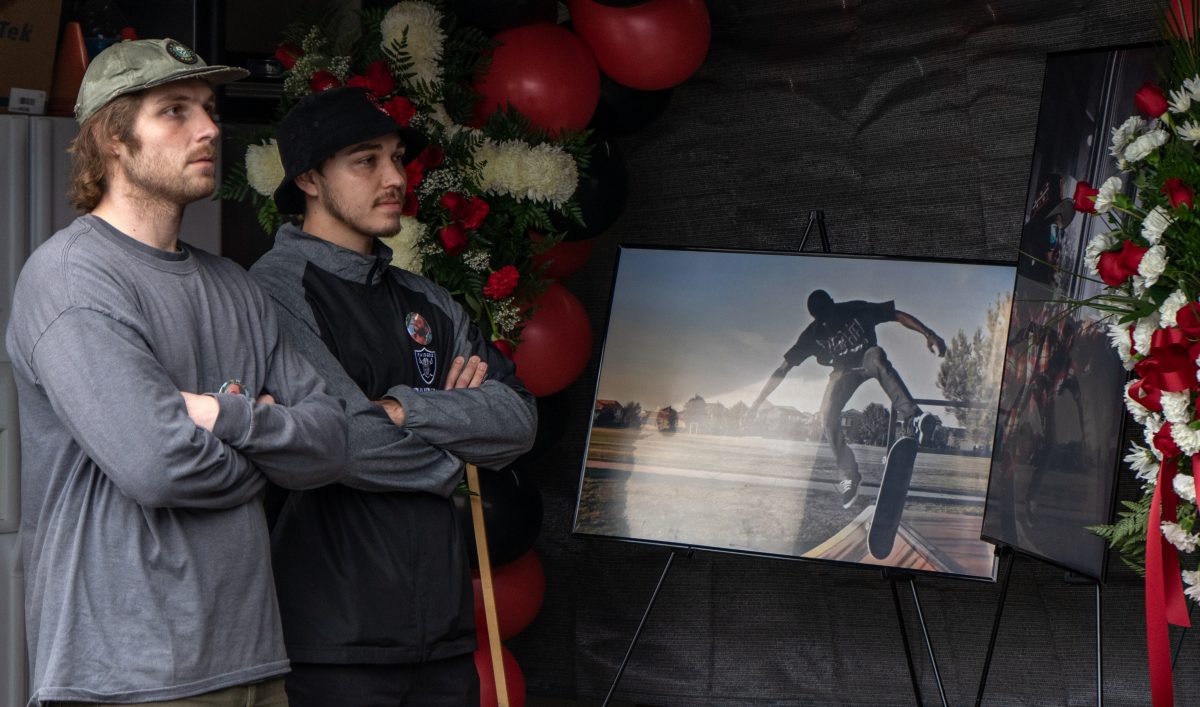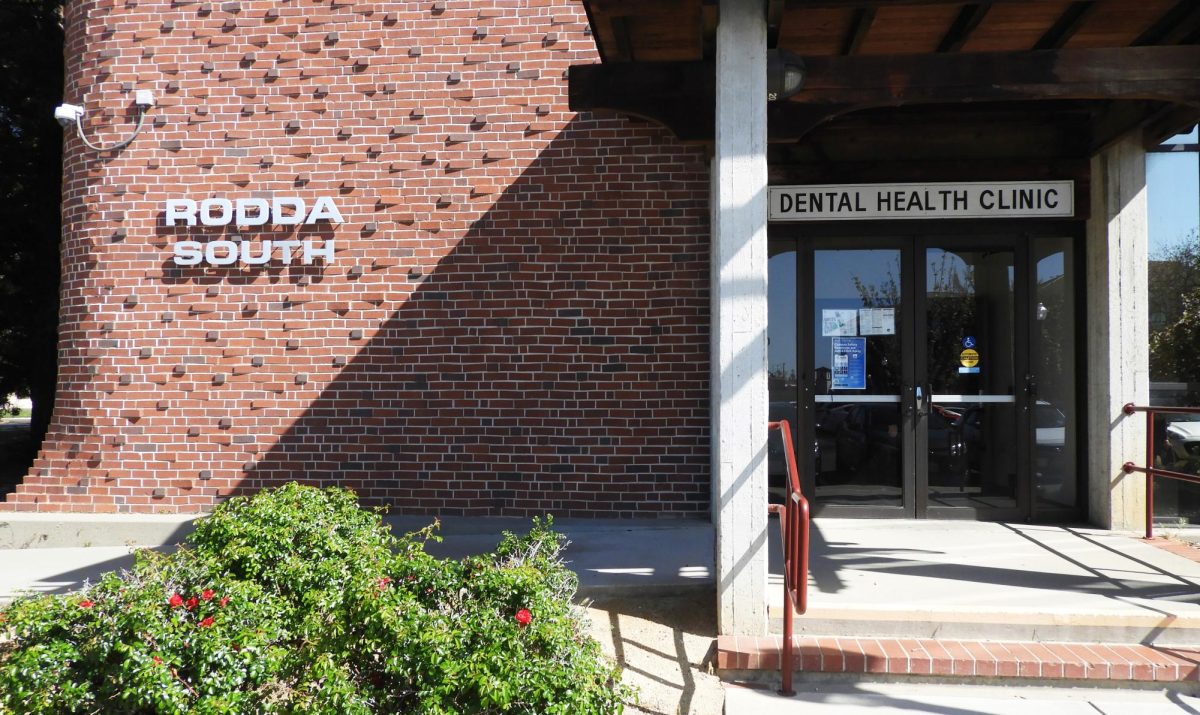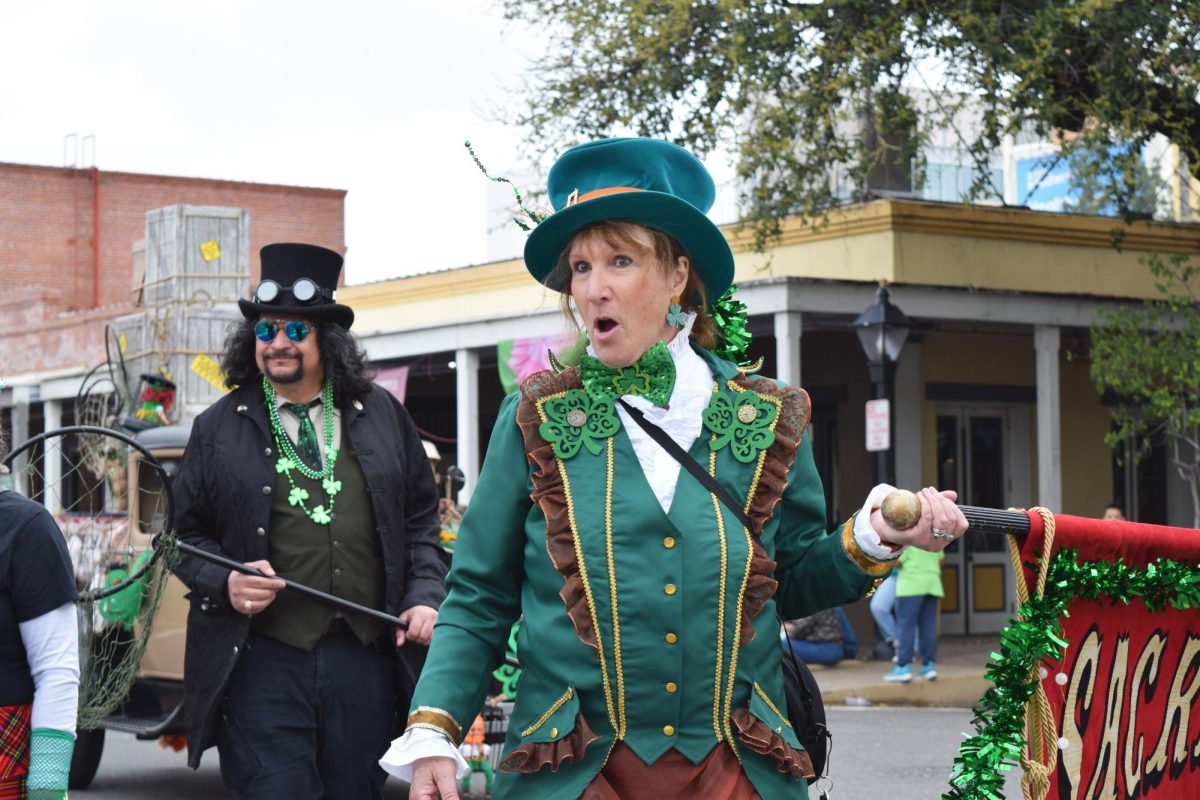
Editor’s note: As I waited in South Gym 226, the student government office, for Marianna Sousa to arrive, I made note of my surroundings: white boards covering every inch of wall, all scarred with old dry-erase markers, aged love seats surrounding a large wooden table, and the smell of Cup O’ Noodles, as one student retrieved it from the microwave.
Then Marianna Sousa entered, with a smile that radiated confidence and poise. We shook hands, and she asked me how long I had attended City College. She stopped herself before she finished and said that I was the one interviewing her.
You were pretty busy last semester with everything going on.
How did you know? You’ve been doing your research.
(laughter)
What was the biggest challenge you faced as a result of the shooting?
When I first came into this position, I was so focused on just learning the basics: learning how to run a meeting, learning how to create relationships with the board, learning how to execute. And then boom! [The shooting] happened out of the blue. Ironically, I was literally leaving campus when all the police were [coming] to the campus.
I remember saying to myself, “Wow! What’s going on?” And after I found everything out, I was able to hit certain people up to find out that everybody on the board was safe.
It just pumped a lot of fear into people. I didn’t realize until that happened how many people suffer from PTSD [post-traumatic stress disorder], how many people have been in random acts of violence. It really surfaced uncertainty for students, because it gave us the opportunity to see that there are some things we need to tighten up on. There are some policies to put in place, some procedures and orders of operation that need to exist not just for the faculty and staff, but also specifically for the students. What do I do if I’m in the middle of the Quad standing next to my friend in a wheelchair with special needs and someone comes shooting? What’s the best place to go?
So we stewed in that and allowed the family to mourn, we tried to reach out, and we did the vigil and love-in day — some positive things to just allow that healing for the family. But for me, as a president, I had to really sit back and say, “I can’t just let this die down. I can’t let this simmer in fear and just evaporate into the universe and turn into whatever else fear-based actions may happen.” So I came up with the idea to create Safety Awareness & Crisis Prevention Day.
When did you find out about President Kathryn Jeffery leaving to take a new position in Santa Monica?
She told me a couple of weeks ago because it’s all about process and procedure. We found out within the last month, and it’s just been a process watching her.
It’s been a really great honor and privilege to watch how she conducts herself in every way from the very personable connecting energy that she has with people in a one-on-one sense, but also how she works with groups. She’s just a really well-balanced leader overall; she just exemplifies positive leaderships.
It’s just been great seeing her, working with her, getting the across-the-board advice and some of that good pull-you-to-the-side advice. It’s just been a real honor.
[Vice President of Student Services Michael] Poindexter has been appointed as our interim, and he’s definitely equipped for the job. He has the energy, the outreach, so I know wherever [President Jeffery is] headed to she’s going to do great things, but I also know that we have a great wealth of positive people to step into that leadership here.
Can you describe working with President Jeffery?
When I first met her, I thought, “That sister’s got her stuff together.” She’s very sharp, very well coordinated, hair’s always whipped, and that was very impressive. Her demeanor is very graceful.
A lot of the time when you’re dealing with women in leadership, there are various types of leadership. Even with me, when I came into this position, my advisers said that I had to really define what kind of leader I want to be. One thing I noticed about Dr. Jeffery is that she has a unique balance of grace, but she’s assertive in the way that she knows how to take charge and lead. That’s a very interesting way to temper leadership because sometimes when you’re too graceful, people think they can run over you. And when you’re too abrasive or too assertive, people can be put off. She has a very unique and special balance between the two.
Working with her is easy and a learning experience. She takes away any of the jitters because she really focuses on being here to serve the students, the constituents and campus life. The way she keeps the focus there and quality in serving all the students, she’s very good at making sure we represent not just the students who look like me, not just the students who look like a certain group or certain age, but every single student on the campus. That was one of her first statements to me in our first meeting, and it was one of the strongest pieces of advice she gave me because now when I step in my role, it’s to make sure to look out for everyone, even the voiceless students.
What do you expect for this upcoming semester?
So the game plan for me after speaking to my adviser Kim Beyrer — who’s great — and some of my mentors, my game plan on coming in was to just learn the job first. I think leaders and activists, we get really excited, and sometimes we jump in and spread ourselves really thin.
So the goal for the first semester for me was to learn the role, learn my part, work with my [vice-president], Ansel Chan, who’s excellent at just being thorough and calm and consistent even when you have nerves, and you’re trying to figure out what to do. Learning to work with the different people on the board who have the wisdom and have the experience, but also trust my brand of leadership — that to me was the priority.
Now round two, spring semester, it’s about executing now that I know the job. It’s about creating the events, and it’s about actually getting in and making the connections to start to provide more for the students.
How do you expect the rest of your term to go?
I’m pretty confident. I think at this point the nervousness and some of the jitters were definitely early on in the game when you’re walking into something new, and you’ve got to navigate and establish your way, but I’m comfortable now.
At this point I can run a meeting without feeling like I’m going to miss something or skip over someone. I have a strong enough team that even when we do make mistakes, we stand corrected in grace, and we work together to work through the kinks.
I feel 100 percent more confident — I already was confident; I’m a confident young lady as it is — but there’s one thing to be confident and know that you can always stand in the space of learning, growing. I know I have a great team. I’d also like to put it out there that we need some new board members with the new semester. Some students have moved on to new positive adventures and aspirations. We’re seeking people to get heavily involved in student government and take up some senator positions. Get active in helping with the decision-making process here on campus.
Do you have any advice for incoming students and aspiring student leaders?
Join Student Senate. If you are a student, faculty member or admin that either gets into leadership, supports leadership or advocates for leadership, there is no reason why you should not be taking a trip up to SOG 226 on campus because we have roles and opportunities here.





























